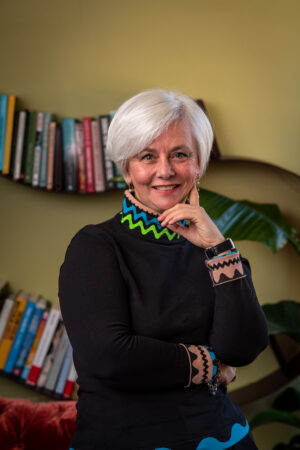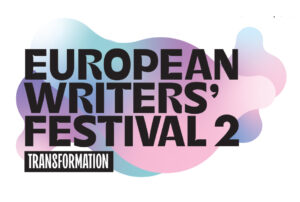Welcome to our recommendations for Autumn 2021. As ever, the books displayed below have been selected by UK and US juries as examples of brilliant, original writing deemed to have a high chance of success with an anglophone readership. All books here are guaranteed financial support for their translation into English if the translation rights are bought by an English-language publisher.
With the publication of these jury choices, New Books in German completes 25 years of championing excellent German-language literature for translation into English. 1996 saw the birth of Dolly the cloned sheep in Scotland, the launch of the Nintendo 64, the Summer Olympics in Atlanta, the privatisation of Deutsche Telekom, the publication of John le Carré’s Tailor of Panama, and the very first meeting of New Books in German at the Goethe-Institut in London.
We will be marking this quarter-century over the next few weeks, including by looking back at some of the books and authors we have featured on this website, and earlier, in the pages of our former magazine. We will celebrate some of the people who have been at the heart of the project.
In the meantime, we hope you will be inspired and engaged by the titles featured below. Scroll down below the book covers or click fiction and nonfiction to see a list of the books with short descriptions.
Autumn 2021 Recommendations
Fiction
Voice of Dissent (Die Gegenstimme), Thomas Arzt, Residenz Verlag – Set in 1938, Thomas Arzt’s debut novel, Voice of Dissent, offers a savage indictment of Austria’s complicity in National Socialist crimes.
The Fake Salute (Der falsche Gruß), Maxim Biller, Kiepenheuer & Witsch – Intricate, complex and edgy, Maxim Biller’s The Fake Salute is a dark tale of ambition, envy and antisemitism.
The Invention of Disobedience (Die Erfindung des Ungehorsams), Martina Clavadetscher, Unionsverlag – In The Invention of Disobedience, Martina Clavadetscher draws on sci-fi and the neo-gothic – with playful allusions to Mary Shelley and Ada Lovelace – to create a feminist, dystopian novel that questions what it means to be human.
Losing Skin (Federn Lassen), Regina Dürig, Literaturverlag Droschl – Regina Dürig’s Losing Skin explores themes closely connected with the Everyday Sexism and #metoo movements, dipping into a scenes from the life of a woman growing up in the present day.
In my father’s home the earth smells like the heavens (In der Heimat meines Vaters riecht die Erde wie der Himmel), Samira El-Maawi, Zytglogge – The book follows a family struggling to unite against the racism of the outside world. Convincingly told from the perspective of a ten-year-old girl, it is a novel that is not afraid to leave questions unanswered.
Worlds Apart (Welten auseinander), Julia Franck, S. Fischer – Written in a clear and sophisticated style, this is an immediate and engaging read, chronicling the lives of four generations of German women over the course of the twentieth century.
Home (Daheim), Judith Hermann, S.Fischer – Judith Hermann is celebrated for her sparse, subtle prose, in which the unspoken takes on as much weight as words. This comes to the fore in Home, an atmospheric novel set over the course of a year that will appeal to fans of Tove Jansson’s adult prose.
Fever 17 (Fieber 17), Felicitas Hoppe, Doerlemann – This book will appeal to fans of Rebecca Solnit, interweaving memoir and literary essay to explore themes around childhood and the formative act of storytelling.
My Mother’s Silver Fox (Der Silberfuchs meiner Mutter), Alois Hotschnig, Kiepenheuer & Witsch – Hotschnig’s latest novel, My Mother’s Silver Fox ,is a fascinating account of the life of a child born as a result of the Lebensborn programme.
The Thirty-Fourth of September (Vierunddreißigster September), Angelika Klüssendorf, Piper Verlag -Building up a mosaic of (mostly) everyday lives, The Thirty-Fourth of September grapples with questions about the lives we lead and the stories we tell ourselves.
The Message (Die Nachricht), Doris Knecht, Hanser Verlag – Examining our obsession with social media from a feminist perspective, the book interweaves a tense and sometimes dark narrative with delicate, detailed descriptions of everyday life.
People Like Dirk (Menschen wie Dirk), Julia Kohli, Lenos Verlag – Julia Kohli’s short story collection People Like Dirk examines modern-day gender politics, digital discourse and cancel culture with a dark and satirical eye.
A Kind of Family (Eine Art Familie), Jo Lendle, Pengiun – A witty and engaging read, Jo Lendle’s A Kind of Family follows three lost souls who form a surprising ‘found family’ in Germany between the 1910s and the 1960s.
Darkenbloom (Dunkleblum), Eva Menasse, Kiepenheuer & Witsch – Comic yet chilling, the novel tells the compelling tale of a town forced to confront its Nazi past.
Swing Ride (Wellenflug), Constanze Neumann, Ullstein Buchverlage – The author imagines the lives of two of her ancestors – Anna and Marie Reichenheim – and as she does so, traces the history of a Jewish family from 1860s Prussia to the early GDR. Exquisitely written, this is a novel without a superfluous word or phrase: a remarkable, effortless read.
A Space Bounded by Shadows (Ein von Schatten begrenzter Raum), Emine Sevgi Özdamar, Suhrkamp Verlag – a compelling and wide-ranging read, setting Özdamar’s own (eventful) life against the backdrop of twentieth century European history.
Wherever You Are (Wo auch immer ihr seid), Khuê Phạm, Penguin – Focussing on first and second-generation Vietnamese emigrants, the novel should appeal to fans of Chimamanda Ngozi Adichie’s Americanah.
Señor Herrera’s Blossoming Intuition (Señor Herreras blühende Intuition), Linus Reichlin, Kiepenheuer & Witsch – A comedy thriller guaranteed to make you laugh out loud, Señor Herrera’s Blossoming Intuition by Linus Reichlin interweaves surreal twists with tongue-in-cheek observations about the relationship between art and life.
Glorious People (Im Menschen muss alles herrlich sein), Sasha Marianna Salzmann, Suhrkamp Verlag -Generous, empathetic and thoughtfully crafted, the novel follows two Russian-speaking Ukrainian women and their daughters from a corruption-riddled USSR to modern-day Germany and its challenges.
On Getting Up: Tales of a Life (Vom Aufstehen Ein Leben in Geschichten), Helga Schubert, dtv – Schubert is a prolific writer whose work – which now spans prose, TV and children’s fiction – was banned in the former East Germany. The author’s latest collection, , brings together a series of interlinking and autobiographical short stories, which promise to enchant fans of Alice Munro’s Dear Life.
My Friend Lotte (Meine Freundin Lotte), Anne Stern, Rowohlt – Accessible yet compelling biographical fiction, My Friend Lotte focuses on the life of Lotte Laserstein – a Jewish artist who came to prominence in the mid- to late-1920s – in a tale of friendship, queer love and survival despite the odds.
Boy with Black Rooster (Junge mit schwarzem Hahn), Stefanie vor Schulte, Diogenes Verlag – Set in a pseudo-medieval past, the adventure of the orphaned boy with a pure heart instantly captures the reader’s attention, with a cast of wicked villagers, sinister horsemen and a mad, Miss Haversham-style princess.
The Stagger (Papa stirbt, Mama auch), Maren Wurster, Hanser Verlag – The Stagger interweaves memoir with theory in a moving and searingly honest examination of the feminist politics of care work. This powerful account of a woman caring for her dying parents will appeal to fans of Maggie Nelson’s The Argonauts and Emily Pine’s Notes to Self.
Nonfiction
Reflections of a Female Barbarian (Betrachtungen einer Barbarin), Asal Dardan, Hoffmann und Campe Verlag – offers a collection of ten autobiographical essays on themes around identity, culture and belonging, examining the concepts of identity politics and structural racism.
Why We Matter (Why We Matter Das Ende der Unterdrückung), Emilia Roig, Aufbau Verlag – Why We Matter, a ground-breaking debut exposing the patterns of systematic oppression through author and activist Emilia Roig’s own experiences and family history landed her on the German bestseller lists.
The Age of Uncertainty: How Physics Changed the Way We See the World (1895 – 1945) (Das Zeitalter der Unschärfe. Die glänzenden und die dunklen Jahre der Physik (1895-1945), Tobias Hürter, Klett-Cotta – Hürter weaves together the stories of the scientists’ lives with their groundbreaking discoveries and the shifting societies they lived in. The book is structured chronologically, with each chapter headed by a year and a city.
About New Books in German
Find out more about our work to promote German language literature for translation into English
Find Funding
Discover more about the guaranteed support for translation into English
News
Delve into articles and interviews about books, publishers, translators, authors and the German language literary field.








